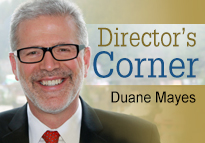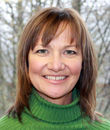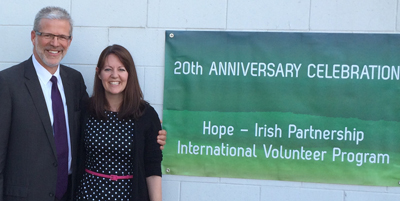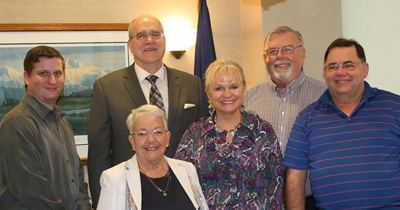20 years of volunteers
|
Hope Community Resources in Alaska has hosted volunteers from Ireland through a formal cultural and work experience exchange for 20 years. The agency, which serves people with disabilities, celebrated the anniversary on June 25 in Anchorage with the professor who oversees the Irish side of the program, and the Irish ambassador to the United States. SDS Director Duane Mayes also attended, as did Caroline Hogan, who came to Alaska through the program and now is a senior manager with SDS. Thanks for this exchange, Hope, and for Caroline! We’re lucky to have her.
![]()
Please take the Conflict Free Care Coordination survey
If you haven’t yet, please take the 10-15 minute survey on how Alaska should roll out the new CMS regulations that forbid care coordinators to also provide direct services: https://www.surveymonkey.com/r/Y6RZGLM
If you need to exit before you finish, do at least one page and click NEXT at the bottom – that saves the information you’ve entered on that page. You’ll need to return to the survey on the same computer. Please take the survey by the end of this month (before August 3.)
The survey brings together the provider community, client advocacy groups and the state. It was funded by the Alaska Association for Developmental Disabilities through a grant from the Alaska Mental Health Trust, and designed by Britteny Howell, a research analyst with the Governor’s Council on Disabilities and Special Education.
The survey is part of the nationwide home- and community-based services revamp starting spring 2014 with the goal of creating a more person-centered system.
Besides measuring Alaska’s capacity for conflict-free care coordination now, SDS is also interested in the survey results for future planning, and rate-setting for person-centered care coordination.
The new regulations to prevent conflicts of interest in care coordination and service provision take effect next summer, July 1 2016.
![]()
SDS working out how to pay ALHs more for
higher-need clients
July 14 meeting on acuity-based rates was a first
When Alaska looked at how to pay providers more if they served higher-need clients, contractor Myers and Stauffer suggested different payment tiers based on the severity of a client’s disability.
That doesn’t always make sense, though, found SDS staff and consultant Sandra Heffern.
For example, people with a severe seizure disorder who have a seizure every day would be in the most-extreme-disability tier. But the rest of the day, they may be perfectly capable, and not need help at all.
“What we’re really trying to look at is how much support an individual needs in their home,” Heffern said.
Last year, SDS director Duane Mayes and the Alaska Mental Health Trust Authority agreed Alaska needed to take a closer look at ways to set rates based on the acuity of clients’ needs; Heffern bid on the project and was hired.
The focus is on licensed assisted living homes that serve seniors and people with physical disabilities (excluding the Pioneer Homes). Other states have stepped-rate systems, but not based on a formula the way insurance companies base rates on intricate mathematic calculations.
Illinois’ model is interesting, Heffern said; it ties ALH rates to nursing home rates. This potentially allows mom-and-pop ALH operations without an involved accounting system
to benefit from the strict controls that Medicaid requires of nursing homes.
“Are there costs in nursing homes that don’t apply in ALHs? We’re going through that now,” Heffern said.
Other factors to consider in acuity-based rate setting include staffing ratios and credentials, whether to manage the rates through licensing or certification, and more.
“There are lots of details to iron out,” Heffern said.
On July 14, ALH providers, the Trust, SDS staff, Office of Rate Review representatives, Division of Behavioral Health staff, and folks from Licensing met to talk over the various options, and what impacts they would have. Heffern said it was one of the first times the groups were in same room to discuss the issues. She added that it was well-attended and very constructive.
“We’ve been talking about this for years,” Heffern said, “and I think people are feeling like now we have an opportunity to really make it succeed.”
![]()
Employee helps the hungry, gets congregation
moving and grooving
|
Super volunteer makes a big difference
Belated congratulations to Clarke Brown on being a finalist for the First Lady’s Volunteer of the Year Awards. Clarke is the cultural arts and activities coordinator for his church, and is known for galvanizing the congregation to help the hungry and support sports and music for adults and youth. One food drive he organized last year collected 35,000 pounds of food in a single day. Hungry kids also benefit from support he has organized for the Children’s Lunchbox, a weekend food program through Bean’s Café. Clarke also helped launch JustServe.org, a website for people who would like to volunteer in Anchorage. Thank you, Clarke, for all you do to enrich your community and our state!
September is Vulnerable Adults Awareness Month
Adult Protective Services will post details on this year’s activities on the APS website closer to the date. If you have an issue of concern related to vulnerable adults, or want to suggest an activity or note an event, email Sarana Schell, sarana.schell@alaska.gov, or Barbara Dick, Barbara.Dick@alaska.gov
![]()
Remember EMOD changes began July 1
The SDS Medicaid waiver regulation changes that took effect July 1 include changes to the process for requesting environmental modification (EMOD) project estimates. Instead of requesting three project estimates, now you need to contact all enrolled EMOD providers and give them the following information regarding a recipient’s accessibility needs:
- the care coordinator’s name and contact information;
- the location of the proposed project, and the information that the care coordinator can arrange an on-site visit to scope out the project;
- the appropriate form for the modification, such as the Request for Cost Estimate form;
- detailed photographs of the project area; and
- a deadline to submit a bid of at least 14 days, unless SDS approved a different time frame
As before, SDS will approve giving the job to the lowest estimate provided to care coordinators. Care coordinators will need to give SDS a copy of the email sent to all enrolled EMOD providers. A current list of those providers can be found at http://dhss.alaska.gov/dsds/Documents/SDSforms/EMOD-ProviderList.pdf. Please note that excluding any currently enrolled EM provider for any reason will result in a denial
of service.
Questions? Contact Andy Sandusky, Andy.Sandusky@alaska.gov.



 Duane Mayes with Caroline Hogan, senior program official.
Duane Mayes with Caroline Hogan, senior program official. Pictured from left to right: Richard Wells, Barbara Young, Pastor Jim Fourtner, First Lady Donna Walker, Shawn Gallagher, Clarke Brown
Pictured from left to right: Richard Wells, Barbara Young, Pastor Jim Fourtner, First Lady Donna Walker, Shawn Gallagher, Clarke Brown